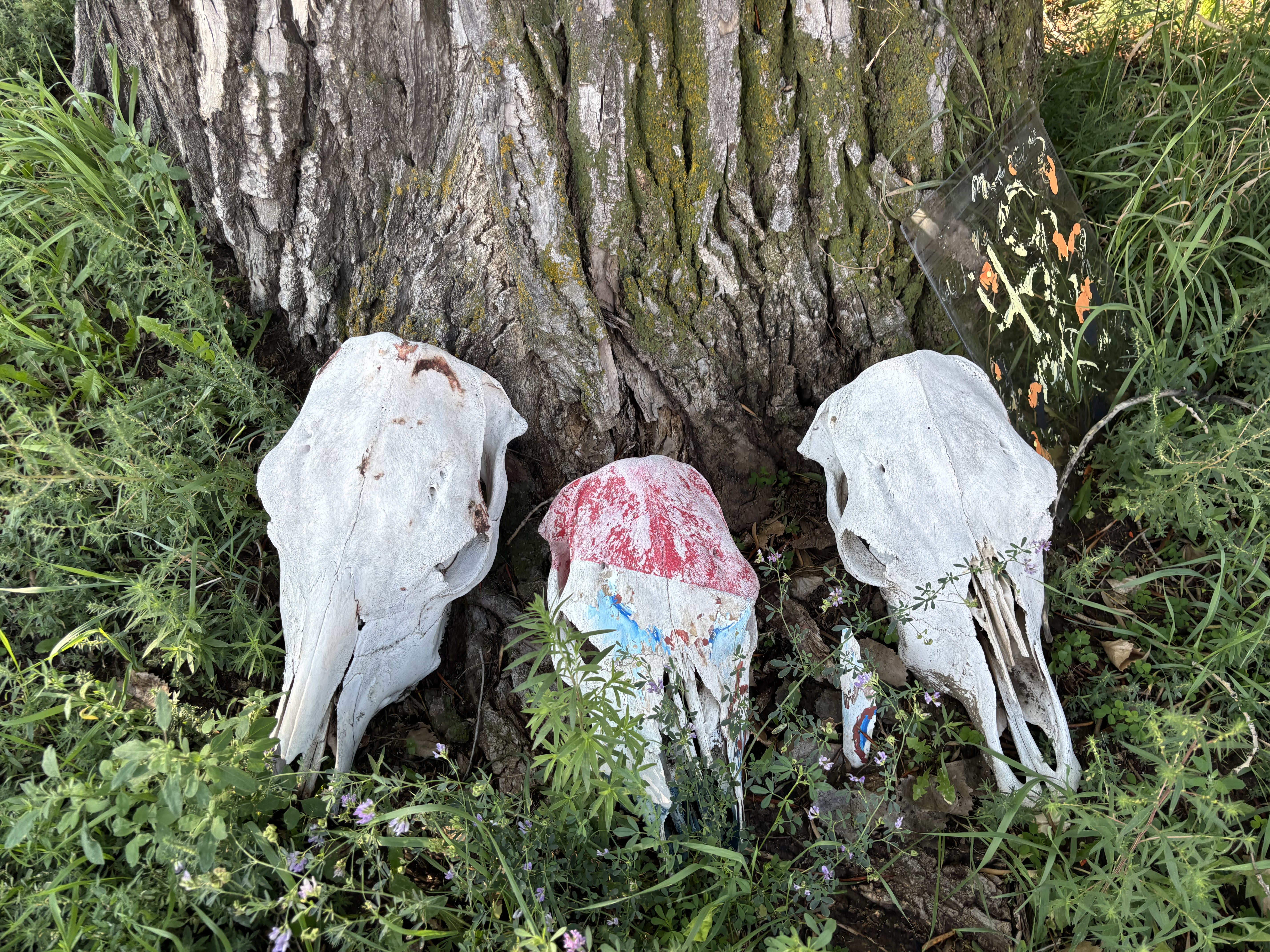- Teacher: Aine McCarthy
Lewis & Clark Moodle
搜索结果: 2164
- Teacher: Eric Tymoigne
the human-nature relationship and includes a
substantial body of evidence demonstrating the
physical and psychological benefits of interacting
with nature. A basic tenet of the field is that
our inner worlds and the outer world are
intimately connected. The need for nature still
resides in our bodies, minds, and spirit. From an
ecotherapy perspective, a central challenge of our
time is the integration of our connection with
nature with our scientific culture and our
technological selves. As such, ecotherapy has a
role to play in addressing such issues as the
decreased presence of nature in our lives; the
exponential growth of technology in daily living;
and the impact of global climate change. This
course guides students toward self-reflection
regarding their environmental identity and their
"sense of place". It also explores the motivations
for integrating ecological perspectives into
academic and professional work.
- Teacher: Ali Archer
the human-nature relationship and includes a
substantial body of evidence demonstrating the
physical and psychological benefits of interacting
with nature. A basic tenet of the field is that
our inner worlds and the outer world are
intimately connected. The need for nature still
resides in our bodies, minds, and spirit. From an
ecotherapy perspective, a central challenge of our
time is the integration of our connection with
nature with our scientific culture and our
technological selves. As such, ecotherapy has a
role to play in addressing such issues as the
decreased presence of nature in our lives; the
exponential growth of technology in daily living;
and the impact of global climate change. This
course guides students toward self-reflection
regarding their environmental identity and their
"sense of place". It also explores the motivations
for integrating ecological perspectives into
academic and professional work.
- Teacher: Ali Archer
- Teacher: Ali Archer
- Teacher: Christopher Russo
- Teacher: Carol Doyle
This course provides an introduction to
ecopsychological theory and surveys research that
supports the theoretical foundations of nature
based practices found in Ecotherapy, Wilderness
Therapy, and other Nature-based therapies. The
course also surveys related concepts, findings and
practices in psychology and counseling/therapy
that provide a foundation for conservation and
sustainability work, environmental education,
advocacy, and activism.
- Teacher: Carol Doyle
- Teacher: Abby Joffe-Aalto
- Teacher: Katheryne Lewis
ecopsychology concepts and nature based practices
in the context of a multi-day outdoor experience.
Topics include backcountry safety, outdoor
leadership, wilderness philosophy and
conservation, benefits of immersion in natural
settings and retreats from modern technologies;
multicultural rites of passage; and techniques for
counseling/therapy in the outdoors. The course
typically features an off-campus weeklong or
multi-weekend residential format including tent
camping along with other activities such as day
and/or overnight hiking; mindfulness and team
building exercises; and other nature based and/or
adventure based activities. Outdoor experience not
required. There is a course fee.
- Teacher: Katheryne Lewis
- Teacher: Christopher Russo
This course provides an opportunity to explore
ecopsychology concepts and nature based practices
in the context of a multi-day outdoor experience.
Topics include backcountry safety, outdoor
leadership, wilderness philosophy and
conservation, benefits of immersion in natural
settings and retreats from modern technologies;
multicultural rites of passage; and techniques for
counseling/therapy in the outdoors. The course
typically features an off-campus weeklong or
multi-weekend residential format including tent
camping along with other activities such as day
and/or overnight hiking; mindfulness and team
building exercises; and other nature based and/or
adventure based activities. Outdoor experience not
required. There is a course fee.
- Teacher: Abby Joffe-Aalto
- Teacher: Katheryne Lewis
- Teacher: Pilar Hernandez-Wolfe

Applications of systems/relational approaches to, treatment of clinical
issues. Course offerings, address a variety of topics. Each course
includes, an emphasis on clinical case conceptualization,, treatment
planning, and intervention.
- Teacher: Jessica Thomas

- Teacher: Jessica Thomas

Applications of systems/relational approaches to, treatment of clinical issues. Course offerings, address a variety of topics. Each course includes, an emphasis on clinical case conceptualization,, treatment planning, and intervention.
- Teacher: Jessica Thomas

Applications of systems/relational approaches to, treatment of clinical
issues. Course offerings, address a variety of topics. Each course
includes, an emphasis on clinical case conceptualization,, treatment
planning, and intervention.
- Teacher: Jessica Thomas

Applications of systems/relational approaches to, treatment of clinical issues. Course offerings, address a variety of topics. Each course includes, an emphasis on clinical case conceptualization,, treatment planning, and intervention.
- Teacher: Jessica Thomas
Applications of systems/relational approaches to
treatment of clinical issues. Course offerings
address a variety of topics. Each course includes
an emphasis on clinical case conceptualization,
treatment planning, and intervention.
- Teacher: Jessica Thomas
- Teacher: Alejandra Favela
- Teacher: Alejandra Favela
- Teacher: Robert Unzueta
- Teacher: Alejandra Favela
- Teacher: Rebecca Brooks
- Teacher: Alejandra Favela
- Teacher: Liza Finkel
- Teacher: Megan Barrett
- Teacher: Lina Darwich
- Teacher: Erin Ocon
- Teacher: Joy Ewell
- Teacher: Joy Ewell
In-depth examination of the relationships between, planning, differentiation, and assessment. Focus, on individually and culturally responsive, approaches to teaching and learning. Topics, include implementing backward design, utilizing a, variety of instructional strategies, and using, differentiated kinds of formative/summative, assessment.
- Teacher: Joy Ewell
- Teacher: Teri Tilley
- Teacher: Teri Tilley
- Teacher: Kimberly Campbell

- Teacher: Cari Zall
- Teacher: Liza Finkel

- Teacher: Cari Zall
- Teacher: Alisun Thompson
- Teacher: Robert Unzueta
Critical and comprehensive review of education and, schooling in American society. Considers education, in its larger socioeconomic, political,, ideological, and cultural contexts and examines, race, class, gender, and culture in the formal, educational system. Analyzes issues of goals,, funding, governance, curricula, policy, staffing,, and reforms both in historical and contemporary, forms. Participants study education both as a, microcosm of society, reflecting the larger, struggles in the country, and as a, quasi-autonomous entity.
- Teacher: Robert Unzueta
- Teacher: Erin Ocon
- Teacher: Susan Tetrick
- Teacher: Lina Darwich
- Teacher: Erin Ocon
- Teacher: Erin Ocon
- Teacher: Susan Tetrick
- Teacher: Erin Ocon
- Teacher: Lina Darwich
- Teacher: Kayla Puente
- Teacher: Lina Darwich

- Teacher: Maika Yeigh
- Teacher: Lina Darwich
- Teacher: Liza Finkel
- Teacher: Lina Darwich
- Teacher: Morgan Hallabrin
- Teacher: Lina Darwich
- Teacher: Sam May-Varas
- Teacher: Karmin Williams
- Teacher: Lina Darwich
- Teacher: Lina Darwich
- Teacher: Lina Darwich
- Teacher: Ken Libby
- Teacher: Teri Tilley
Creating a community of support in the classroom., Emphasizes understanding students' personal needs,, creating positive teacher-student and peer, relationships, creating classroom rules and, procedures within a democratic learning community,, and responding to minor behavior problems.
- Teacher: Teri Tilley
- Teacher: Kimberly Campbell
- Teacher: Liza Finkel
- Teacher: Erin Ocon
- Teacher: Erin Ocon
Independent Study enables a student to pursue, in, collaboration with a faculty member, an academic, course not currently offered. To receive credit, for independent study, the student consults with, the faculty member before registration to define, the course content, title, amount of credit, and, academic evaluation. As a general rule, a graduate, student may apply no more than three courses of, independent study toward a graduate degree or, licensure.
- Teacher: Lina Darwich
collaboration with a faculty member, an academic
course not currently offered. To receive credit
for independent study, the student consults with
the faculty member before registration to define
the course content, title, amount of credit, and
academic evaluation. As a general rule, a graduate
student may apply no more than three courses of
independent study toward a graduate degree or
licensure.
- Teacher: Amber Tatge
collaboration with a faculty member, an academic
course not currently offered. To receive credit
for independent study, the student consults with
the faculty member before registration to define
the course content, title, amount of credit, and
academic evaluation. As a general rule, a graduate
student may apply no more than three courses of
independent study toward a graduate degree or
licensure.
- Teacher: Amber Tatge
- Teacher: Debi Briggs-Crispin
- Teacher: Debi Briggs-Crispin
collecting and using data for inquiry-based school
improvement. Introduces several levels of data use
and application, moving from state accountability
requirements to equalizing access to high
standards for all students. The course is designed
to prepare the Principal practitioner to conduct
high quality improvement cycles aimed at classroom
and school environments. Participants will use
improvement science practices to collect, analyze,
communicate, and use various forms of data in
school visioning, collaborative improvement
planning, and decision making. Thorough coverage
of these topics is designed to equip school
leaders with the knowledge and skills necessary to
select, evaluate, and apply findings from extant
research related to personnel, classroom, school,
or district levels problems of practice.
- Teacher: David Nieslanik
- Teacher: David Nieslanik
- Teacher: David Nieslanik
- Teacher: Megan Barrett
- Teacher: Megan Barrett
working successfully in the larger political,
social, economic, legal, and cultural environment
of an educational system. Examination of landmark
legal cases, federal policies, state and local
laws, and regulations impacting school systems.
Exploration of social justice avocation through
access and equity issues that promote equitable
learning for students. Discussions of the roles
and responsibilities of policy makers and
stakeholders.
- Teacher: Ben Kates
working successfully in the larger political,
social, economic, legal, and cultural environment
of an educational system. Examination of landmark
legal cases, federal policies, state and local
laws, and regulations impacting school systems.
Exploration of social justice avocation through
access and equity issues that promote equitable
learning for students. Discussions of the roles
and responsibilities of policy makers and
stakeholders.
- Teacher: Ben Kates
- Teacher: Shelly Reggiani
- Teacher: David Nieslanik
- Teacher: Jacqueline Roebuck Sakho
- Teacher: Hassan Dornayi
the systems and processes that ensure a healthy
and effective district. Leaders need to be
prepared to cultivate the equitable use of
educational resources through establishing
collaborative and inclusive procedures,
guidelines, norms, and policies. Part of this work
involves the ability to assess district needs and
priorities and then equitably allocate
opportunities and resources across the district
according to these needs. Leaders need to
understand that equitable resource allocation of
materials, fiscal resources, personnel,
technology, interventions, time, and high-quality
teachers, leaders, and supporting staff all
contribute to a healthy and effective district
culture. Leaders must be equipped with the skills
to use data to evaluate systems for inequities and
then work collaboratively to align and improve
these systems so that they are coherent, cohesive,
and focused on supporting the learning,
improvement, and well-being of students and staff.
- Teacher: Hassan Dornayi
the systems and processes that ensure a healthy
and effective district. Leaders need to be
prepared to cultivate the equitable use of
educational resources through establishing
collaborative and inclusive procedures,
guidelines, norms, and policies. Part of this work
involves the ability to assess district needs and
priorities and then equitably allocate
opportunities and resources across the district
according to these needs. Leaders need to
understand that equitable resource allocation of
materials, fiscal resources, personnel,
technology, interventions, time, and high-quality
teachers, leaders, and supporting staff all
contribute to a healthy and effective district
culture. Leaders must be equipped with the skills
to use data to evaluate systems for inequities and
then work collaboratively to align and improve
these systems so that they are coherent, cohesive,
and focused on supporting the learning,
improvement, and well-being of students and staff.
- Teacher: Hassan Dornayi
- Teacher: Dawn Montgomery
- Teacher: Ken Struckmeier
- Teacher: Susan Rodriguez
- Teacher: Ken Struckmeier
- Teacher: Megan Barrett
- Teacher: Megan Barrett
- Teacher: Megan Barrett
- Teacher: Loretta Benjamin-Samuels
- Teacher: Dawn Montgomery
one academic year in length (two consecutive
terms). Students must have a minimum of 3 years as
a practicing administrator in order to enroll in
the class. Students will apply the essential
content knowledge, leadership, collaboration, and
research skills necessary for district level
leadership. As part of this experience, students
will complete a capstone project in which they
apply concepts and skills learned in previous
coursework. This capstone will involve action
research, an equity audit, or in-depth research
and the creation of an action plan regarding a
professional problem of practice. Upon successful
completion of the capstone project, the 220 hour
practicum, and the compilation of a portfolio
demonstrating competency in each of the
administrative standards a credit/no credit grade
will be submitted to the campus advisor who will
audit the student's transcript and determine their
eligibility for Professional Administrator License
program completion.
- Teacher: Dawn Montgomery
Leaders are responsible for fostering an inclusive
school and district culture where each and every
child is a valued and fundamental member and
participant in classrooms and the community. This
course will address how disability is socially
constructed, and how assumptions about a student's
perceived ability can be reinforced by
exclusionary school and district practices. This
course will provide opportunities for
administrators to use current, relevant research
to increase their understanding of leadership
practices that foster an inclusive school culture
for students with Special Education and TAG
designations, as well as developing and supporting
students in need of 504 plans. Additionally,
students in this class will develop the knowledge
and skills to enact high leverage practices in the
areas of effective collaboration and
communication, assessment and accountability,
social, emotional, and behavior supports,
instruction, program/service support, and
supervision and legal requirements.
In the past, school-wide zero-tolerance policies, have focused mainly on reacting to specific, student misbehavior by implementing, punishment-based strategies. Research during the, past 20 years has shown that school-wide behavior, systems that are positively focused on desired, behaviors can result in a substantive lifestyle, impact for all members of a school community. This, course will examine the systems-based approach for, implementing culturally proficient, multi-tiered,, school-wide behavior supports, and the critical, role that school leaders have in building positive, learning environments for each student.
- Teacher: Vicki Nishioka
- Teacher: Megan Barrett
- Teacher: Megan Barrett
- Teacher: Bradley Capener
English/dual language learners requires schools
and districts to become skilled at designing and
implementing inclusive, asset-oriented systems and
practices that support English language
development, equitable access, and equal
opportunity for all students. This course is
designed to prepare administrators with the skills
and mindsets required to support the cultural,
linguistic, and academic needs of English/dual
language learners. The course will include an
overview of an administrator's legal obligations
for English/dual language students, an explanation
of cultural competency through the lens of race,
culture, and language, and review of best
practices and policies for providing culturally
responsive instruction and support to students and
families who are dual language learners. An
overview of language acquisition theory with a
focus on program components will be provided.
Program design, models, and approaches will also
be explored.
- Teacher: Hassan Dornayi
English/dual language learners requires schools
and districts to become skilled at designing and
implementing inclusive, asset-oriented systems and
practices that support English language
development, equitable access, and equal
opportunity for all students. This course is
designed to prepare administrators with the skills
and mindsets required to support the cultural,
linguistic, and academic needs of English/dual
language learners. The course will include an
overview of an administrator's legal obligations
for English/dual language students, an explanation
of cultural competency through the lens of race,
culture, and language, and review of best
practices and policies for providing culturally
responsive instruction and support to students and
families who are dual language learners. An
overview of language acquisition theory with a
focus on program components will be provided.
Program design, models, and approaches will also
be explored.
- Teacher: Hassan Dornayi
- Teacher: Dawn Montgomery
- Teacher: John Lenssen
- Teacher: Sidney Morgan
- Teacher: John Lenssen
- Teacher: Sidney Morgan
- Teacher: Loretta Benjamin-Samuels
- Teacher: Lisa McCall
This foundational course is designed to introduce
the theories, practices, core responsibilities,
and issues associated with leadership and social
justice in educational organizations. Aspiring
principals and other educational practitioners
move toward acquiring and affirming requisites and
capacities to engage in social justice praxis
(critical reflection and action) towards improving
conditions and culture in schools in authentic and
collaborative ways. Candidates learn about
instructional, organizational, community, ethical,
and sociopolitical functions of leadership. Using
research and reflection, candidates analyze and
clarify internal and external conceptions of and
attitudes toward leadership at the intersection of
social injustice including but not limited to:
systemic racism, whiteness as privilege and power,
gender and class biases, ableism, and deficit
minded decision-making to guide them in leadership
work.
- Teacher: Yolanda Coleman
- Teacher: Lisa McCall
- Teacher: Megan Barrett
- Teacher: Megan Barrett
collecting and using data for inquiry-based school
improvement. Introduces several levels of data use
and application, moving from state accountability
requirements to equalizing access to high
standards for all students. The course is designed
to prepare the Principal practitioner to conduct
high quality improvement cycles aimed at classroom
and school environments. Participants will use
improvement science practices to collect, analyze,
communicate, and use various forms of data in
school visioning, collaborative improvement
planning, and decision making. Thorough coverage
of these topics is designed to equip school
leaders with the knowledge and skills necessary to
select, evaluate, and apply findings from extant
research related to personnel, classroom, school,
or district levels problems of practice.
- Teacher: David Nieslanik
collecting and using data for inquiry-based school
improvement. Introduces several levels of data use
and application, moving from state accountability
requirements to equalizing access to high
standards for all students. The course is designed
to prepare the Principal practitioner to conduct
high quality improvement cycles aimed at classroom
and school environments. Participants will use
improvement science practices to collect, analyze,
communicate, and use various forms of data in
school visioning, collaborative improvement
planning, and decision making. Thorough coverage
of these topics is designed to equip school
leaders with the knowledge and skills necessary to
select, evaluate, and apply findings from extant
research related to personnel, classroom, school,
or district levels problems of practice.
- Teacher: David Nieslanik